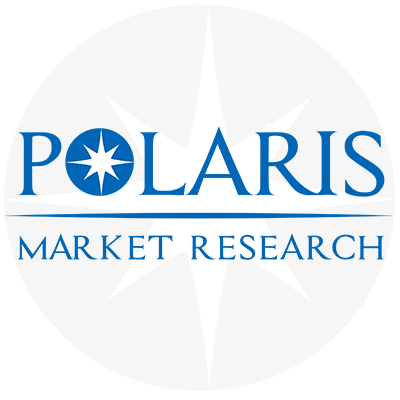The global DNA-based skin care products market, valued at USD 6.02 billion in 2021, is poised for strong growth, projected to expand at a Compound Annual Growth Rate (CAGR) of 6.33% through 2030. This growth is largely driven by an increasing demand for personalized beauty regimens, rising awareness of skin health, and advancements in genetic testing technologies. These developments are fundamentally reshaping how consumers approach skincare and how brands formulate solutions tailored to individual genetic profiles.
Market Overview
DNA-based skin care products utilize genetic testing to analyze an individual's DNA and determine their specific skin care needs based on their unique genetic makeup. By identifying markers related to collagen breakdown, antioxidant levels, pigmentation, and skin sensitivity, these products offer customized regimens that address underlying skin issues rather than just surface symptoms.
The integration of genomics into skincare routines has turned traditional skin care approaches on their head, offering a new era of precision dermatology. Fueled by trends such as biohacking, anti-aging solutions, and customized skincare, the market is set to experience significant disruption and opportunity.
Key LSI Keywords
To improve topical relevance and SEO optimization, the following Latent Semantic Indexing (LSI) keywords are included:
Personalized skincare
Genetic testing kits
Anti-aging solutions
Custom skincare regimens
Key Market Growth Drivers
1. Rising Demand for Personalized Skincare
Consumers are increasingly seeking products that are not only effective but also personalized. DNA-based skincare leverages individual genetic insights to recommend targeted treatments, offering a level of customization that traditional products can't match. Millennials and Gen Z consumers, in particular, are driving this trend as they prefer smart and data-driven beauty solutions.
2. Technological Advancements in Genomic Science
The genetic testing industry has witnessed significant advancements, especially with the increasing affordability and accessibility of at-home DNA testing kits. Companies are now able to provide DNA analysis reports with actionable insights for skincare, enabling brands to create custom skincare regimens based on users' specific needs.
3. Growing Awareness of Skin Health
The prevalence of chronic skin conditions such as eczema, acne, psoriasis, and premature aging has made consumers more conscious of their skin health. The rising awareness about how genetics influence skin aging and health is creating demand for anti-aging solutions grounded in science.
4. Expansion of Direct-to-Consumer Models
Many DNA-based skincare brands are embracing the DTC (Direct-to-Consumer) model, which allows for a streamlined customer experience. From ordering a genetic testing kit to receiving a custom product delivered to their door, the process is highly personalized and data-centric.
Market Challenges
1. Data Privacy Concerns
With the involvement of genetic data, privacy and security are significant concerns. Consumers are increasingly cautious about how their DNA information is stored, shared, or potentially misused. Regulatory frameworks such as GDPR and HIPAA must be navigated carefully by market players to gain consumer trust.
2. High Product Costs
DNA-based skin care products are priced at a premium, often due to the costs associated with genetic testing, R&D, and custom formulation. This restricts access primarily to high-income consumers and could slow down mass adoption, especially in developing markets.
3. Limited Scientific Backing
While the concept is revolutionary, some critics argue that the field is still evolving and that scientific validation of the efficacy of DNA-based formulations is limited. More peer-reviewed studies and clinical trials are needed to solidify trust in these solutions.
Browse Full Insights:
https://www.polarismarketresearch.com/industry-analysis/dna-based-skin-care-products-market\
Regional Analysis
North America
North America dominates the DNA-based skincare market, accounting for the largest revenue share in 2024. The region benefits from high consumer awareness, advanced healthcare infrastructure, and a flourishing cosmeceuticals industry. The United States, in particular, has seen the rise of several startups offering DNA-based beauty solutions, especially in metropolitan hubs like Los Angeles and New York.
Europe
Europe is another stronghold, driven by demand for clean beauty and sustainable, science-backed products. Countries such as Germany, the UK, and France are embracing genetic testing kits for wellness and skin care. The presence of well-established dermatology clinics and a consumer base open to innovation supports market growth.
Asia-Pacific
The Asia-Pacific region is forecasted to grow at the fastest CAGR during the forecast period. Markets like Japan, South Korea, and China are investing heavily in biotechnology and personalized health care. Cultural emphasis on flawless skin and early adoption of tech-savvy beauty solutions make this region highly lucrative.
Latin America and Middle East & Africa
Though still in early growth phases, these regions present untapped opportunities. Rising disposable incomes, increasing digital access, and growing beauty consciousness are expected to fuel demand in markets like Brazil, UAE, and South Africa over the next decade.
Key Companies and Competitive Landscape
The DNA-based skincare products market is characterized by strategic partnerships, R&D investments, and direct-to-consumer launches. Here are some of the leading players in the space:
1. EpigenCare Inc.
Known for combining epigenetics with skin care, EpigenCare offers a personalized skincare solution based on the user's epigenetic markers. Their platform uses a skin profile to suggest non-invasive solutions.
2. GeneU
A UK-based brand, GeneU was among the first to introduce DNA-based anti-aging serums. Their technology assesses two key genes involved in collagen breakdown and antioxidant protection.
3. SkinDNA
Operating globally, SkinDNA offers an at-home genetic test to analyze 16 markers across five categories like elasticity, sensitivity, and pigmentation. Their algorithm recommends skincare routines and supplements based on the results.
4. ALLÉL
Founded in Sweden, ALLÉL focuses on luxury anti-aging products backed by DNA testing. The brand targets dermatology clinics and aesthetic centers across Europe and the Middle East.
5. 23andMe (Partnerships)
While 23andMe is not a skincare brand, their DNA database and analytical tools have made partnerships with beauty companies possible, enabling them to develop skin care solutions based on deep genetic insights.
Emerging players and startups are also entering the market, focusing on AI-powered skin diagnostics, mobile app integrations, and blockchain-based data privacy solutions.
Future Outlook
The future of the DNA-based skincare market looks promising with potential for convergence between AI, telehealth, genomics, and skincare. Brands are expected to offer even deeper personalization by including environmental data (pollution, humidity), lifestyle factors (diet, sleep), and microbiome analysis in their offerings.
As consumer preferences shift toward holistic, individualized, and preventive care, the DNA-based skincare market is well-positioned to thrive.
Conclusion
The DNA-based skin care products market is a transformative force in the beauty industry. By leveraging the power of genomic testing and personalized skincare, this market is not just a trend but a reflection of the future of health-conscious beauty. While challenges remain—particularly around data privacy and scientific validation—the growth trajectory and consumer interest are undeniable.
As key players continue to innovate and regulatory clarity improves, DNA-based skin care may soon become a mainstream standard rather than a niche offering. Investors, developers, and marketers should watch this space closely as it unfolds into a billion-dollar frontier.
More Trending Latest Reports By Polaris Market Research:
Medical Device Engineering Market
GLP-1 Analogues Market
Idiopathic Pulmonary Fibrosis Treatment Market
Egg Incubator Market
Asia Pacific Skin Boosters Market
Colorectal Cancer Market
Chronic Obstructive Pulmonary Disease Market
Cystic Fibrosis Market
Diabetes Devices Market
Diabetes Drug Market
Drug Delivery Market
Dry Eyes Disease Market
Head And Neck Cancer Market
Hypertension Drug Market
Remote Patient Monitoring Devices Market
3 in 1 Electric Drive Module (eDrive Modules) Market
Latent TB Testing Market
Manual Resuscitators Market
The global DNA-based skin care products market, valued at USD 6.02 billion in 2021, is poised for strong growth, projected to expand at a Compound Annual Growth Rate (CAGR) of 6.33% through 2030. This growth is largely driven by an increasing demand for personalized beauty regimens, rising awareness of skin health, and advancements in genetic testing technologies. These developments are fundamentally reshaping how consumers approach skincare and how brands formulate solutions tailored to individual genetic profiles.
Market Overview
DNA-based skin care products utilize genetic testing to analyze an individual's DNA and determine their specific skin care needs based on their unique genetic makeup. By identifying markers related to collagen breakdown, antioxidant levels, pigmentation, and skin sensitivity, these products offer customized regimens that address underlying skin issues rather than just surface symptoms.
The integration of genomics into skincare routines has turned traditional skin care approaches on their head, offering a new era of precision dermatology. Fueled by trends such as biohacking, anti-aging solutions, and customized skincare, the market is set to experience significant disruption and opportunity.
Key LSI Keywords
To improve topical relevance and SEO optimization, the following Latent Semantic Indexing (LSI) keywords are included:
Personalized skincare
Genetic testing kits
Anti-aging solutions
Custom skincare regimens
Key Market Growth Drivers
1. Rising Demand for Personalized Skincare
Consumers are increasingly seeking products that are not only effective but also personalized. DNA-based skincare leverages individual genetic insights to recommend targeted treatments, offering a level of customization that traditional products can't match. Millennials and Gen Z consumers, in particular, are driving this trend as they prefer smart and data-driven beauty solutions.
2. Technological Advancements in Genomic Science
The genetic testing industry has witnessed significant advancements, especially with the increasing affordability and accessibility of at-home DNA testing kits. Companies are now able to provide DNA analysis reports with actionable insights for skincare, enabling brands to create custom skincare regimens based on users' specific needs.
3. Growing Awareness of Skin Health
The prevalence of chronic skin conditions such as eczema, acne, psoriasis, and premature aging has made consumers more conscious of their skin health. The rising awareness about how genetics influence skin aging and health is creating demand for anti-aging solutions grounded in science.
4. Expansion of Direct-to-Consumer Models
Many DNA-based skincare brands are embracing the DTC (Direct-to-Consumer) model, which allows for a streamlined customer experience. From ordering a genetic testing kit to receiving a custom product delivered to their door, the process is highly personalized and data-centric.
Market Challenges
1. Data Privacy Concerns
With the involvement of genetic data, privacy and security are significant concerns. Consumers are increasingly cautious about how their DNA information is stored, shared, or potentially misused. Regulatory frameworks such as GDPR and HIPAA must be navigated carefully by market players to gain consumer trust.
2. High Product Costs
DNA-based skin care products are priced at a premium, often due to the costs associated with genetic testing, R&D, and custom formulation. This restricts access primarily to high-income consumers and could slow down mass adoption, especially in developing markets.
3. Limited Scientific Backing
While the concept is revolutionary, some critics argue that the field is still evolving and that scientific validation of the efficacy of DNA-based formulations is limited. More peer-reviewed studies and clinical trials are needed to solidify trust in these solutions.
Browse Full Insights:
https://www.polarismarketresearch.com/industry-analysis/dna-based-skin-care-products-market\
Regional Analysis
North America
North America dominates the DNA-based skincare market, accounting for the largest revenue share in 2024. The region benefits from high consumer awareness, advanced healthcare infrastructure, and a flourishing cosmeceuticals industry. The United States, in particular, has seen the rise of several startups offering DNA-based beauty solutions, especially in metropolitan hubs like Los Angeles and New York.
Europe
Europe is another stronghold, driven by demand for clean beauty and sustainable, science-backed products. Countries such as Germany, the UK, and France are embracing genetic testing kits for wellness and skin care. The presence of well-established dermatology clinics and a consumer base open to innovation supports market growth.
Asia-Pacific
The Asia-Pacific region is forecasted to grow at the fastest CAGR during the forecast period. Markets like Japan, South Korea, and China are investing heavily in biotechnology and personalized health care. Cultural emphasis on flawless skin and early adoption of tech-savvy beauty solutions make this region highly lucrative.
Latin America and Middle East & Africa
Though still in early growth phases, these regions present untapped opportunities. Rising disposable incomes, increasing digital access, and growing beauty consciousness are expected to fuel demand in markets like Brazil, UAE, and South Africa over the next decade.
Key Companies and Competitive Landscape
The DNA-based skincare products market is characterized by strategic partnerships, R&D investments, and direct-to-consumer launches. Here are some of the leading players in the space:
1. EpigenCare Inc.
Known for combining epigenetics with skin care, EpigenCare offers a personalized skincare solution based on the user's epigenetic markers. Their platform uses a skin profile to suggest non-invasive solutions.
2. GeneU
A UK-based brand, GeneU was among the first to introduce DNA-based anti-aging serums. Their technology assesses two key genes involved in collagen breakdown and antioxidant protection.
3. SkinDNA
Operating globally, SkinDNA offers an at-home genetic test to analyze 16 markers across five categories like elasticity, sensitivity, and pigmentation. Their algorithm recommends skincare routines and supplements based on the results.
4. ALLÉL
Founded in Sweden, ALLÉL focuses on luxury anti-aging products backed by DNA testing. The brand targets dermatology clinics and aesthetic centers across Europe and the Middle East.
5. 23andMe (Partnerships)
While 23andMe is not a skincare brand, their DNA database and analytical tools have made partnerships with beauty companies possible, enabling them to develop skin care solutions based on deep genetic insights.
Emerging players and startups are also entering the market, focusing on AI-powered skin diagnostics, mobile app integrations, and blockchain-based data privacy solutions.
Future Outlook
The future of the DNA-based skincare market looks promising with potential for convergence between AI, telehealth, genomics, and skincare. Brands are expected to offer even deeper personalization by including environmental data (pollution, humidity), lifestyle factors (diet, sleep), and microbiome analysis in their offerings.
As consumer preferences shift toward holistic, individualized, and preventive care, the DNA-based skincare market is well-positioned to thrive.
Conclusion
The DNA-based skin care products market is a transformative force in the beauty industry. By leveraging the power of genomic testing and personalized skincare, this market is not just a trend but a reflection of the future of health-conscious beauty. While challenges remain—particularly around data privacy and scientific validation—the growth trajectory and consumer interest are undeniable.
As key players continue to innovate and regulatory clarity improves, DNA-based skin care may soon become a mainstream standard rather than a niche offering. Investors, developers, and marketers should watch this space closely as it unfolds into a billion-dollar frontier.
More Trending Latest Reports By Polaris Market Research:
Medical Device Engineering Market
GLP-1 Analogues Market
Idiopathic Pulmonary Fibrosis Treatment Market
Egg Incubator Market
Asia Pacific Skin Boosters Market
Colorectal Cancer Market
Chronic Obstructive Pulmonary Disease Market
Cystic Fibrosis Market
Diabetes Devices Market
Diabetes Drug Market
Drug Delivery Market
Dry Eyes Disease Market
Head And Neck Cancer Market
Hypertension Drug Market
Remote Patient Monitoring Devices Market
3 in 1 Electric Drive Module (eDrive Modules) Market
Latent TB Testing Market
Manual Resuscitators Market













